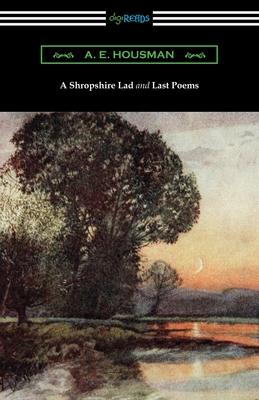Alfred Edward Housman was an English poet and classical scholar whose work became a major force in turn of the century English poetry. Unlike his contemporaries, Housman's poetry does not qualify as Romantic, Victorian, or Modernist, and is not overly sentimental or optimistic; instead, his deeply pessimistic and ironic poetry, written clearly and succinctly, earned Housman recognition as one of the foremost classicists of his time. His best-known work, "A Shropshire Lad", is a cycle of 63 poems set in a half-imaginative Shropshire, and explores themes of death, the fleetingness of love, and the passing of youth. The poems became increasingly popular at the time of World War I because of their depiction of brave English soldiers. In the early 1920s, Housman's closest friend and old Oxford roommate, Moses Jackson, was dying, prompting Housman to compile his "Last Poems" for Jackson to read. The forty-one previously unpublished poems were so titled because Housman felt his inspiration had been exhausted. These two volumes are combined together here in this representative collection of Housman's works. This edition is printed on premium acid-free paper.

Alfred Edward Housman was an English poet and classical scholar whose work became a major force in turn of the century English poetry. Unlike his contemporaries, Housman's poetry does not qualify as Romantic, Victorian, or Modernist, and is not overly sentimental or optimistic; instead, his deeply pessimistic and ironic poetry, written clearly and succinctly, earned Housman recognition as one of the foremost classicists of his time. His best-known work, "A Shropshire Lad", is a cycle of 63 poems set in a half-imaginative Shropshire, and explores themes of death, the fleetingness of love, and the passing of youth. The poems became increasingly popular at the time of World War I because of their depiction of brave English soldiers. In the early 1920s, Housman's closest friend and old Oxford roommate, Moses Jackson, was dying, prompting Housman to compile his "Last Poems" for Jackson to read. The forty-one previously unpublished poems were so titled because Housman felt his inspiration had been exhausted. These two volumes are combined together here in this representative collection of Housman's works. This edition is printed on premium acid-free paper.